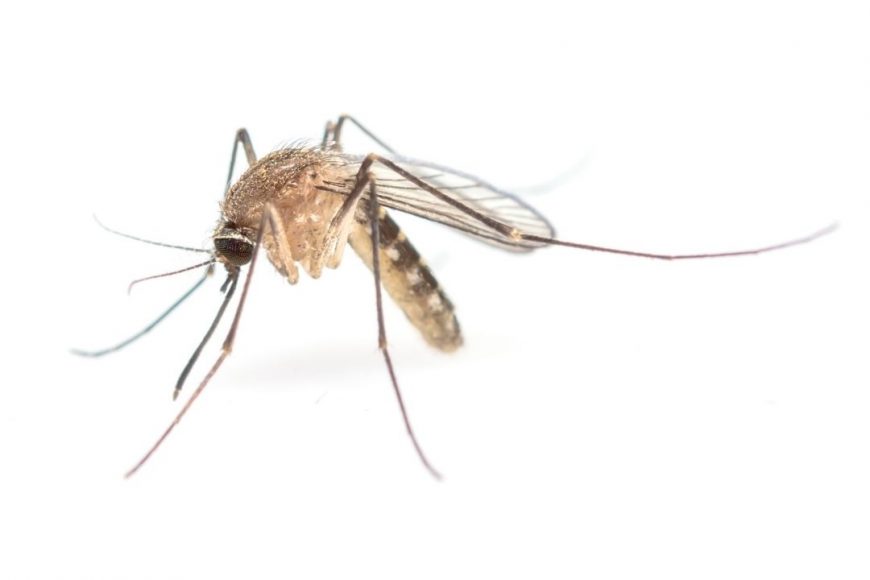Fill out the form below and a Cypress Creek representative will be in touch with you about your pest control needs.
BLOG

The Mosquito Threat in Houston: What You Need to Know
Houston, known for its vibrant culture, humid climate, and lush outdoor spaces, offers the perfect habitat—for mosquitoes. While these tiny insects might seem like nothing more than an irritating nuisance, they pose a much bigger threat than itchy bites and buzzing in your ears. Mosquitoes are carriers of dangerous diseases, and Houston’s climate makes it a hotspot for mosquito-borne illnesses.
This blog explores why mosquitoes are a growing concern in Houston, the risks they bring, and how you can protect yourself and your family. By the end, you’ll have a clear understanding of why awareness and prevention are crucial to combat this tiny but mighty threat.
The Perfect Storm for Mosquitoes in Houston
Why is Houston a Mosquito Magnet?
Houston’s warm, humid climate creates an ideal breeding environment for mosquitoes. With temperatures often staying above 50°F for most of the year, mosquitoes thrive here year-round, especially during the wet, hot summer months. The city’s frequent rainstorms leave behind plenty of standing water in yards, ditches, and drains, all of which serve as ideal breeding grounds for these pests.
Additionally, Houston’s urban population growth has introduced more water storage containers and artificial habitats, further contributing to an uptick in mosquito populations.
Mosquito-Borne Diseases in Houston
Mosquitoes are not just annoying—they’re dangerous. Several diseases transmitted by mosquito bites are present in Houston. Some of the most notable include:
- West Nile Virus – The most commonly reported mosquito-borne disease in Texas, West Nile Virus can cause severe fever, headaches, and even neurological damage in rare cases.
- Zika Virus – Though Houston hasn’t seen a Zika outbreak recently, Texas remains at risk due to Houston’s warm climate and frequent travel to/from Central and South America, where Zika is more prevalent.
- Dengue Fever – Dengue cases have been limited, but Houston remains at risk because of the Aedes aegypti mosquito, a vector commonly found in the area.
- St. Louis Encephalitis – Though rare, this disease has been documented in Texas and can lead to severe brain inflammation in extreme cases.
The health consequences of these diseases stress an undeniable truth—mosquitoes are more than an inconvenience; they’re a public health hazard.
Why Mosquitoes Are Getting Worse
The Role of Climate Change
Global warming is amplifying mosquito-related challenges. Rising temperatures extend the mosquito breeding season, while heavier rainfalls create more standing water for them to breed. Research indicates that mosquito-borne diseases are expanding their geographic reach, bringing risks to areas that previously did not face them.
Houston’s status as a low-elevation city prone to flooding exacerbates the issue. Hurricanes and tropical storms, which are becoming more frequent and intense, leave behind vast floodwaters that act as breeding grounds for mosquitoes.
The Impact of Urbanization
Houston is one of the fastest-growing cities in the United States. With rapid urbanization come the proliferation of construction sites, abandoned containers, and poorly drained areas where water can collect. This creates an abundance of artificial mosquito habitats in residential and commercial spaces.
Additionally, as green spaces are paved over to accommodate new developments, natural mosquito predators such as birds, bats, and dragonflies have fewer places to thrive. This disrupts the ecological balance and contributes to unregulated mosquito population growth.
Protecting Yourself From Mosquito-Borne Threats
Personal Protection Tips
Protecting yourself from mosquitoes begins with personal preventative measures. Here’s how you can minimize your risk of bites and illnesses:
- Wear Protective Clothing – Opt for long-sleeved shirts and pants, especially during dusk and dawn when mosquitoes are most active.
- Use EPA-Approved Repellents – Look for repellents containing DEET, picaridin, or oil of lemon eucalyptus to offer long-lasting protection.
- Install Mosquito Nets – Use screens on windows and doors to keep mosquitoes out of your home, or install a mosquito net for extra protection while sleeping.
- Avoid Peak Mosquito Times – Limit outdoor activities during the early morning and evening hours when mosquitoes are most aggressive.
Managing Your Environment
Reducing mosquito populations around your home and community requires attention to your surroundings. Try these practical steps to eliminate breeding sites:
- Remove Standing Water – Dump water from plant saucers, tires, buckets, and trash can lids after every rainfall.
- Clean Gutters – Make sure your gutters are clear of debris so that water doesn’t pool or stagnate.
- Treat Water Features – Use mosquito “dunks” or larvicides in ponds, fountains, or other standing water features to kill larvae.
- Maintain Landscaping – Trim overgrown vegetation in your yard, as adult mosquitoes like to hide in shaded, cool areas during the heat of the day.
Community and Professional Interventions
While personal actions can help, large-scale prevention requires collective efforts. Local governments, pest control companies, and even neighborhoods can contribute by employing effective mosquito mitigation strategies. These might include the use of fogging campaigns, larvicide treatments in public waterways, and community clean-up events to reduce mosquito habitats.
Taking Action Against the Tiny Threat
Mosquitoes in Houston aren’t just a nuisance—they’re a real threat to public health. With the accelerating risks of mosquito-borne diseases compounded by climate change and urban development, it’s more important than ever to take preventative action.
By protecting yourself, managing the environment around your home, and supporting community-level interventions, you can reduce the risks posed by these tiny but dangerous insects.
Want to help keep Houston buzzing with activity—but not mosquitoes? Stay informed, take action, and spread the word. Together, we can make our city as safe and enjoyable as it is vibrant.

